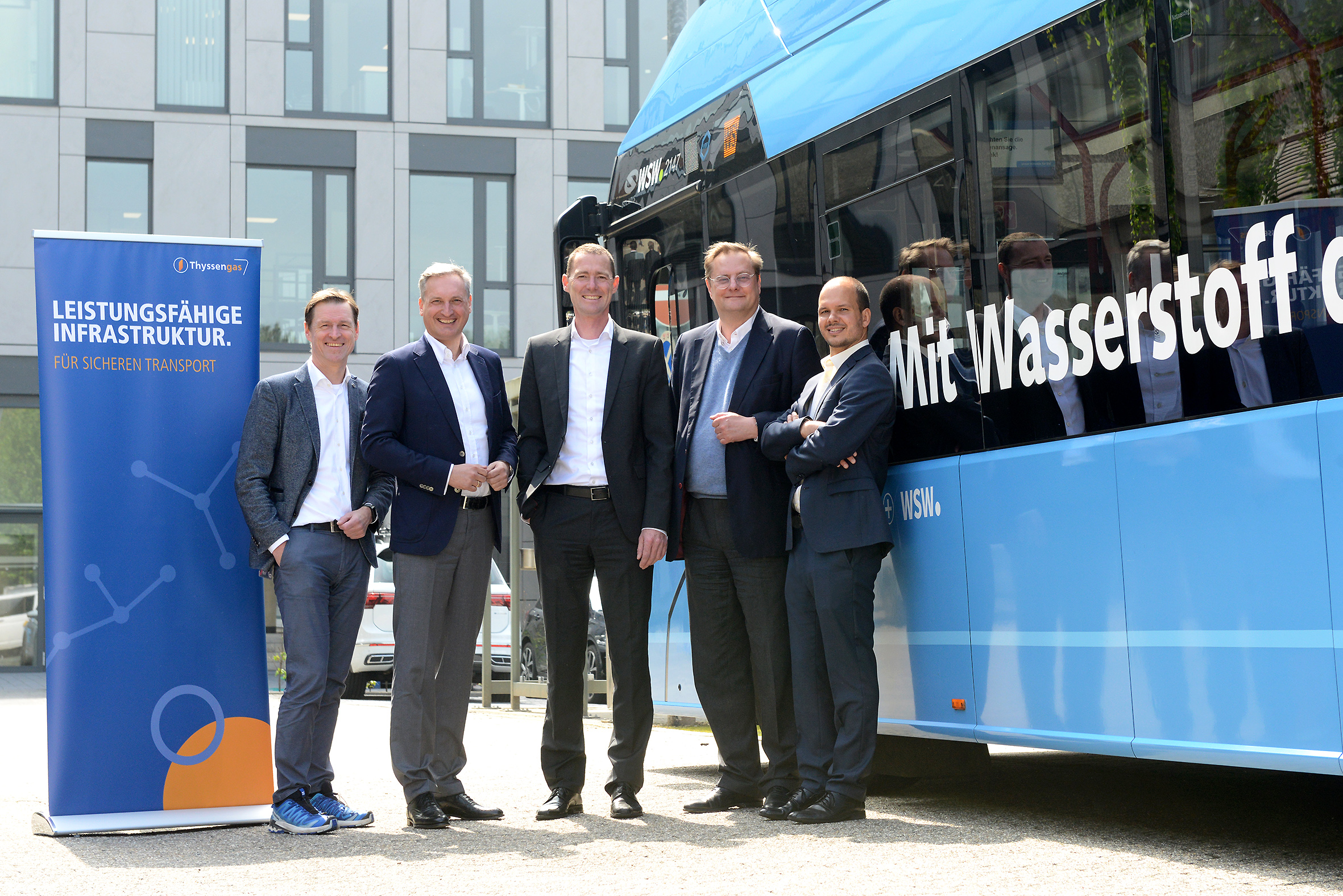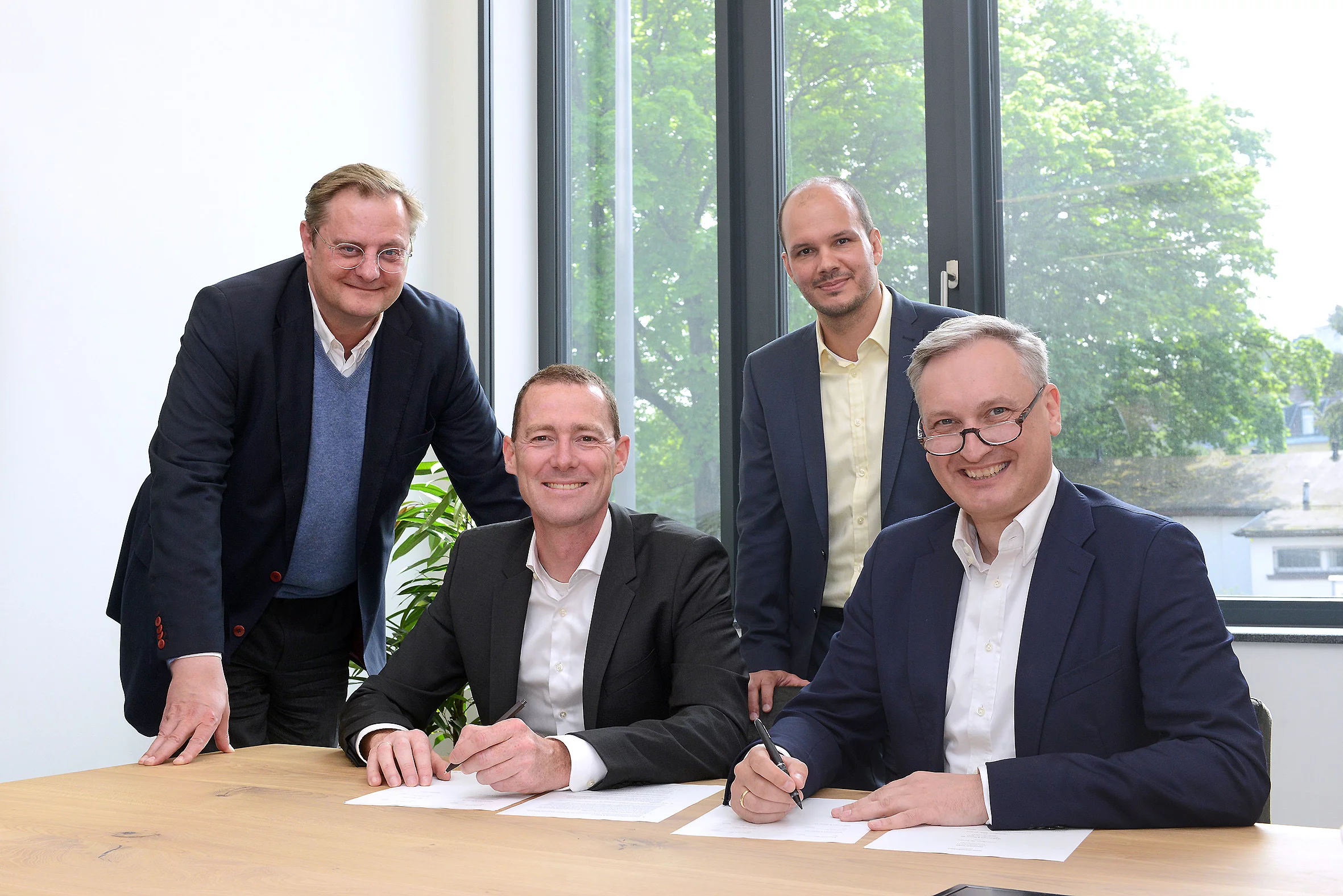Long-term supply prospects for the regional economy
Dr Thomas Gößmann, CEO of Thyssengas GmbH, on the planned collaboration with Wuppertaler Stadtwerke: "With WSW, we have gained another strong partner for the H2 ramp-up in Germany. We will bring the hydrogen to the Bergisches Land region with our long-distance H2 pipelines and WSW will distribute it in Wuppertal in the next step. In this way, we are creating a long-term, secure supply perspective in the Wuppertal area and, above all, the opportunity for companies to decarbonise their energy-intensive processes." Markus Hilkenbach, CEO of Wuppertaler Stadtwerke, also welcomes the planned cooperation: "Germany has set itself ambitious climate targets. As a pioneer for Wuppertal, it is our mission to play an active role in shaping the energy and mobility transition. As a versatile, emission-free energy source, hydrogen can make a key contribution to this. We want to utilise this enormous potential and connect the Bergisches Land region and the city of Wuppertal to the emerging hydrogen pipeline network in NRW together with the long-distance network operator Thyssengas. This will benefit the regional economy in particular. The signing of the memorandum of understanding is a first, very important step. Now it's time to concretise the plans."
Versatile applications for hydrogen
Hydrogen is a versatile energy source and a climate-friendly alternative to fossil fuels. It therefore has a key role to play in the energy and heating transition, as well as in municipal heating planning. In future, climate-friendly hydrogen (H2) and its derivatives ammonia (NH3) or methanol (CH3OH) are to be used primarily where the direct and complete utilisation of electricity from renewable energies is not sufficient or not possible. The demand for hydrogen in industry and small and medium-sized enterprises is high - and is set to grow. The German government is currently planning to build a 9,700-kilometre hydrogen pipeline network by 2032, connecting all major production, import and storage centres with the relevant consumers in Germany via this hydrogen core network.
Possible uses for hydrogen in the region
According to initial plans, the new hydrogen network will run past the northern heights of Wuppertal. This would enable the connection and development of a Wuppertal hydrogen network. There are many possible applications for hydrogen as an energy source: in industry, for heat production, as a fuel for power stations, as hydrogen can be converted into electricity in fuel cells. This technology is used, for example, in combined heat and power plants for decentralised electricity and heat production or for driving electric motors in vehicles such as buses, commercial vehicles or ships. By developing a hydrogen network in Wuppertal, WSW could, among other things, realise and operate additional hydrogen buses. In addition, the Barmen combined heat and power plant and local industry, for example, would also benefit from the supply of the city's own hydrogen.

